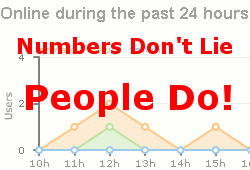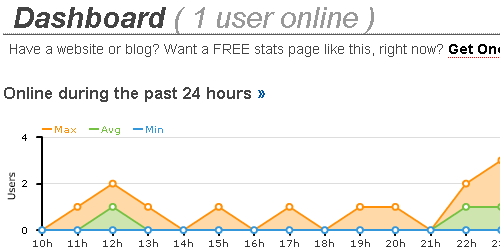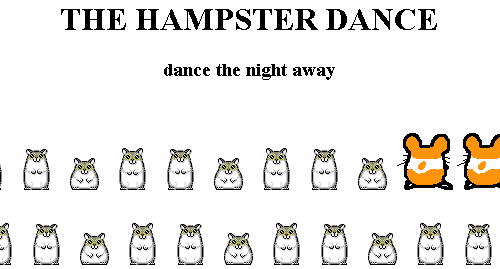
I had to ask myself whether this is humor or hazard for me to give a swing at our ever-increasing population of SEO and social media “experts”. I guess the idea gave me just a little guilt pang at first, because I always heard that I should treat people the way I want to be treated. Who am I to tell anybody they don’t have what it takes?
Then I grinned from ear to ear, tucked my sweet love-everybody nature back in my shorts, and put my middle finger in the air. After all, this is not “biting the hand that feeds me” … this is harsh and very real truth. This is about educating, and saving a few lucky others from huge disappointments. This is about shining a spotlight on liars. This is a glimpse of reality! In fact, it is a reality that I intend to illustrate for you very clearly.
Are All SEO Liars?
No, not all search engine optimizers are liars. There truly is an enormous value in the trade, but because of that, it has attracted a lot of liars. Any good SEO knows that there is no reason to lie about the service. They may even help you to understand the most common lies of the industry. For example, here are a couple useful articles: “7 SEO Lies: How to Know When the SEO is Lying” or Good SEO vs. Bad SEO: How to Tell the Difference. Each of these include objective means to weed out the liars and cheats.
On the other hand, many self-proclaimed SEO will make claims like the one I found on Twitter pictured below. I am only listing one, but not because I have a problem with this one in particular. I just picked this one at random, but I actually dislike all of the squillion others out there lying to people about SEO. I just don’t want to waste more time making a huge list of them.

Khubah Jogja offers the opportunity to “make money online” and “get 2k visitor per hour”. That’s great, right?! I guess it may sound great, but then I checked out this Twitter user’s website and imagine what I found … some reality! The funny thing is that they actually have their website statistics viewable to the public using a service called “whos.amung.us”.
The biggest hour I found was three visitors, and the maximum visitors in a day was sixteen. In the image shown here, the one visitor represented was me. That is kind of a stretch from 2,000 per hour.

I don’t want to leave this up for too much confusion, so I checked with Alexa, Open Site Explorer, and others. Two thousand visitors per hour was not to be found. Then again I knew that already when I saw the article claiming that keyword meta tags make a big influence in search ranking. Not just that it was total crap, the article was not dated 1998 … it was from this year! If you think that old meta tags pitch is true, it will serve you well to read “SEO Meta Tags: Oh, You Must Be Another SEO Expert!”
Social Media Expert / Cattle Farmer
Perhaps not every instance is so extreme as the social media strategist / cattle farmer depicted here, but I really need to share this with you, because it almost made me pee myself with laughter and sob at the same time!
It is funny, but actually sad when you think of how widely accepted total confusion has become in social media.
I know that farming and ranching is hard work. It is really tough to get ahead in that industry, so why not augment the income and work as a social media strategist? That may just be the perfect fit!

Yes, you can call me a jackass for singling this poor dear out. I mean, after all, at least she didn’t use a picture of some young hot chick in her profile, the way so many others do. In fact, she looks downright sweet, and wholesome. She is probably a really nice person, too … but she is also lying to herself and others. Her appearance would absolutely not turn me away if I was in the market for cows and chickens. Social media strategy, on the other hand, requires something other than just being sweet.
According to her website at “Lynda’s Social Media Strategy“ she is suggesting to “Use Social Media to Promote Your Business”. She even has descriptions and very low prices for her services. It includes pricing for a service that I pointed out as an absurdity and largely a rip-off a while back when I wrote “Hourly Rate for Setting Up Social Media Profiles?!”

Contrary to her own advice and service offerings, when I clicked on the social media links on the right side of her page where it says “Follow”, I found a non-existent Blogger profile, the link to edit a LinkedIn account, links to Digg and Delicious (but not to a specific profile), an incorrect Feedburner link, a Facebook personal profile with 28 friends, a MySpace account, and a Twitter account.
Being a social media strategist, you may think she would use social media a lot. She was pretty scarce across the board, but I enjoyed this example. Within the Twitter account, the last five updates included a lot of weather change as follows:
Then, five tweets and six months later …
“It’s hot no rain pasture’s drying up feed bill going up everything’s going up except my pay. Oh well…could be worse.” (on 19 July … earlier today)
I thought to myself that maybe she is actually doing what she says, and using her social media strategies for her own business down on the ranch. No, there was not a single social media instance of anything whatsoever at the Belle Manor Farms website. Go ahead … see how Lynda’s social media strategy is working out for her. Check out the Lynda’s Social Media Strategy Facebook Page that I only found after looking it up on her personal Facebook profile (not on her website). Maybe you could give it a “Like” for sympathy, since nobody else has.
Perhaps I’m just not clear on this yet, but it seems that Lynda, like so many others, is struggling with confusion of the difference between social media strategy and social media tactics.
Now Let’s Bash Murnahan
I know I may seem to be a real jackass when I ask questions like “Why Do You Want to Become an SEO and Social Media Expert?”
Maybe I’m just jealous of them for having a lack of a conscience. Maybe I’m bitter with them for becoming experts without actually having to spend decades to learn about marketing. Maybe I’m pissed because they get to have fun jobs outside of the Internet, while I am stuck here all day as CEO of a decade-old Internet company.
Sure, if I could have done it so easily, I would have a lot less gray hair today. Let me explain something for you, though, before you start calling me names.
Just because a person has a new computin’ machine does not mean they have an equal shot at this mythical money generator that people make the Internet out to be.
Just because “everybody” said you will miss huge opportunities by not being on Facebook, Twitter, Google+, and the many other social metworks, it does not mean those “huge opportunities” are what they told you, or that they will come to you without equally huge effort.
Maybe “everybody” was exaggerating just a tiny bit when they said you would “earn millions online … easy … in your pajamas!” Maybe “everybody” was not lying to you, but just made it a little easier to lie to yourself.
There are a lot of damn liars out there on the Internet! Worse yet, the online marketing fields of SEO (search engine optimization) and social media marketing have them breeding like cockroaches. I think that an astonishing number of them are lying to themselves.
I hope you don’t let them lie to you, too. There are no “innocent victims” in these cases, because we each have the same opportunities to gather due diligence. The victims are better described as “ignorant victims”.
So, was it humor or hazard that I chose to share this with you? In my opinion, the humor is that anybody could actually be fooled by such absurdities. The hazard is that such absurdities even exist.
Podcast: Play in new window | Download













